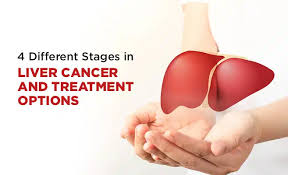
Holistic Naturopathic and Ayurvedic Treatment for Liver Cancer Across All Stages
Liver cancer is a complex disease with various stages, each requiring a unique approach to care. While conventional treatments like surgery, chemotherapy, and radiation are often necessary, integrating naturopathic and Ayurvedic practices can support liver health, boost the immune system, and improve the quality of life. Here’s a look at how holistic treatments can benefit individuals at each stage of liver cancer, providing complementary support through diet, herbal therapies, stress management, and lifestyle changes.
Stage I: Early-Stage Liver Cancer
In Stage I, cancer is typically small and confined to the liver, making it the most treatable phase. At this stage, naturopathic and Ayurvedic practices can focus on enhancing liver health and strengthening the immune system to support healing and prevent cancer from spreading.
Diet and Nutrition: A nutrient-rich diet with anti-inflammatory foods, such as leafy greens, cruciferous vegetables, berries, and whole grains, can help reduce oxidative stress on the liver. Incorporating liver-supportive foods like garlic, turmeric, and dandelion greens supports detoxification and cellular health.
Ayurvedic Herbs: Herbs like turmeric (curcumin) and guduchi (Tinospora cordifolia) help reduce inflammation and support liver function. Amla (Indian gooseberry) is another Ayurvedic herb rich in antioxidants, potentially aiding in liver protection.
Mind-Body Practices: Yoga, meditation, and pranayama (breathing exercises) can reduce stress, promoting emotional resilience and a positive outlook, which are essential for recovery.
Stage II: Progression with Blood Vessel Involvement
In Stage II, cancer may involve nearby blood vessels, requiring additional focus on both physical and mental well-being to maintain liver health and boost the body’s resilience during treatment.
Herbal Supplements: Milk thistle (Silybum marianum) is commonly used in naturopathy for its liver-protective properties, particularly in supporting liver cells during treatments. Ayurvedic herbs like kalmegh (Andrographis paniculata) are also thought to support immune health and aid liver function.
Acupuncture: Acupuncture can help alleviate chemotherapy side effects like nausea, pain, and fatigue. By stimulating specific points, acupuncture promotes energy flow and can reduce the physical discomfort associated with treatment.
Detoxification and Hydration: At this stage, gentle liver detox practices—such as drinking warm water with lemon and including high-fiber foods—can support the liver’s natural detox process. Avoiding alcohol, refined sugars, and processed foods reduces the toxic load on the liver.
Stage III: Advanced Tumors and Greater Vascular Involvement
Stage III often brings larger tumors and further blood vessel involvement, making symptom management and quality of life key priorities. Holistic practices focus on enhancing comfort, supporting immunity, and providing emotional support.
Adaptogenic Herbs: Ayurvedic adaptogens like ashwagandha and brahmi can help manage stress and fatigue, supporting mental health. In naturopathy, adaptogens like reishi mushroom and holy basil are used to support the immune system and reduce inflammation.
Emotional Support and Stress Reduction: Cancer can be emotionally challenging, and therapies like guided meditation, counseling, and journaling can help patients process their emotions. Support groups can offer comfort and foster a sense of community.
Homeopathy: Though not universally accepted, some patients find relief from homeopathic remedies, which are tailored to symptoms like nausea, digestive discomfort, or anxiety. A qualified practitioner can help identify safe options to consider alongside other treatments.
Stage IV: Metastatic Liver Cancer
Stage IV liver cancer indicates that the cancer has spread beyond the liver. At this stage, treatments aim to manage symptoms, improve comfort, and support emotional well-being.
Palliative Care with Ayurvedic Herbs: Kutki (Picrorhiza kurroa) and bhumyamalaki (Phyllanthus niruri) are Ayurvedic herbs used to support liver health and offer anti-inflammatory benefits. However, all herbal treatments should be approved by a healthcare provider to ensure they don’t interfere with other treatments.
Pain and Symptom Management: Acupuncture, massage therapy, and energy healing techniques like Reiki can help manage pain, improve relaxation, and foster a sense of peace. In this advanced stage, acupuncture may help reduce pain and alleviate nausea or vomiting from chemotherapy.
Mental and Emotional Support: Spiritual practices, meditation, and gentle yoga can help patients find inner calm. Naturopathy often emphasizes mind-body therapies to relieve emotional strain, and spiritual support—whether through prayer, nature walks, or personal reflection—can be immensely comforting during this phase.
Conclusion
Holistic naturopathic and Ayurvedic approaches offer meaningful support at each stage of liver cancer, focusing on symptom relief, liver health, immune support, and emotional well-being. These complementary treatments can be tailored to meet the needs of each stage, from boosting the immune system in early stages to providing palliative support in advanced stages. Patients should always consult with healthcare providers before incorporating new herbs or treatments, especially in conjunction with conventional therapies, to ensure a safe, integrated approach to healing and wellness




Be the first to comment